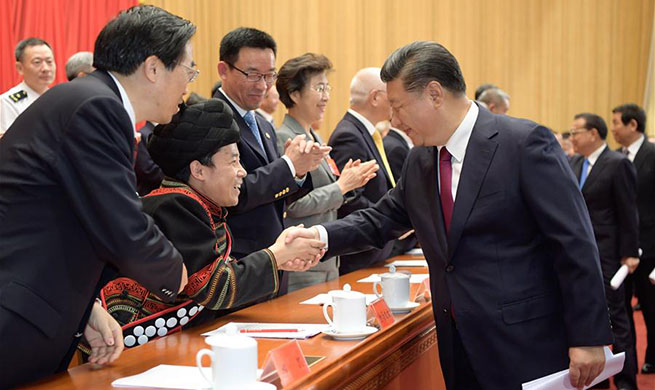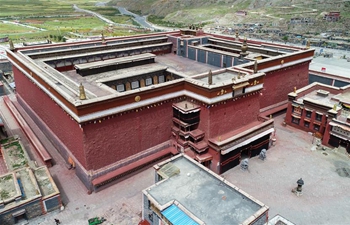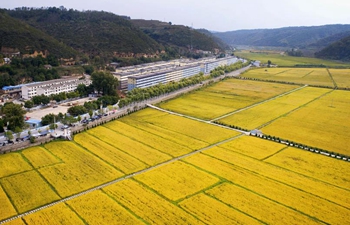by Xinhua Writers Xu Xiaolei, Ma Jianguo
UNITED NATIONS, Sept. 14 (Xinhua) -- Outgoing UN General Assembly President Miroslav Lajcak has said that he is "cautiously optimistic" about world peace but cautioned against undermining multilateralism.
Speaking in a recent interview with Xinhua shortly before the end of his tenure, Lajcak warned that the alternatives to multilateralism is "either rules imposed by the most powerful ones or anarchy."
"We really need to protect multilateralism," he said.
The senior diplomat from Slovakia was elected president of the 72nd General Assembly in May last year. He is expected to step down this month when the current 12-month session of the General Assembly ends.
Lajcak highlighted efforts by the General Assembly over the past year in building peace, particularly the time and efforts it has dedicated to promoting conflict prevention, an approach reflected in the discussions at the UN High-level Meeting on Peacebuilding and Sustaining Peace in April.
"We managed to put this issue of prevention of conflict and sustaining peace on the agenda of the UN, making sure that there will be a report next year and the year after that," he said.
The two-and-half-year old concept of "sustaining peace," which is really focused on preventing conflicts, represents a shift in emphasis from the current system, which centered on "what to do once peace has been lost," like sending peacekeeping missions, he said.
"We need to keep peace while peace is still there. And this is what sustaining peace is about," Lajcak said, stressing the need to act when there are warning signs flashing.
Despite the efforts by the UN system in building peace, the world is far from free of conflict.
"I'm a cautious optimist, because last year showed that if we work together we can achieve a lot," he said, referring to the Korean Peninsula issue.
He praised China for its role in promoting multilateralism which the UN stands for.
Lajcak visited China twice since elected as General Assembly president. China's commitment to multilateralism and support for the UN was clearly proven, he said.
He affirmed China's contribution to the world body, highlighting the fact that "China is now number three provider of the regular budget, number two provider of the UN peacekeeping budget."
Under the current scale of assessments, China contributes 7.92 percent to the UN regular budget (about 210 million U.S. dollars yearly) and 10.25 percent of UN peacekeeping budgets (over 810 million dollars yearly).
"China is ... a global leader when it comes to implementing our commitments related to the Paris climate agreement, when it comes to implementing 2030 development agenda," Lajcak said.
The diplomat also said that the Belt and Road Initiative led by China, aimed at building economic linkages between Asia, Europe and Africa, and the concept of community of shared future for mankind put forward by China, "are exactly projects that support the ideas on which the UN are built."
The South-South Cooperation, in which China is an active participant, is "instrumental for the future of this planet," he added.
Lajcak cautioned against some current developments that potentially undermines multilateralism.
"Let us not forget that multilateralism was built after catastrophes," he said, referring to the founding of the League of Nations after the World War I and the UN after the World War II.

















